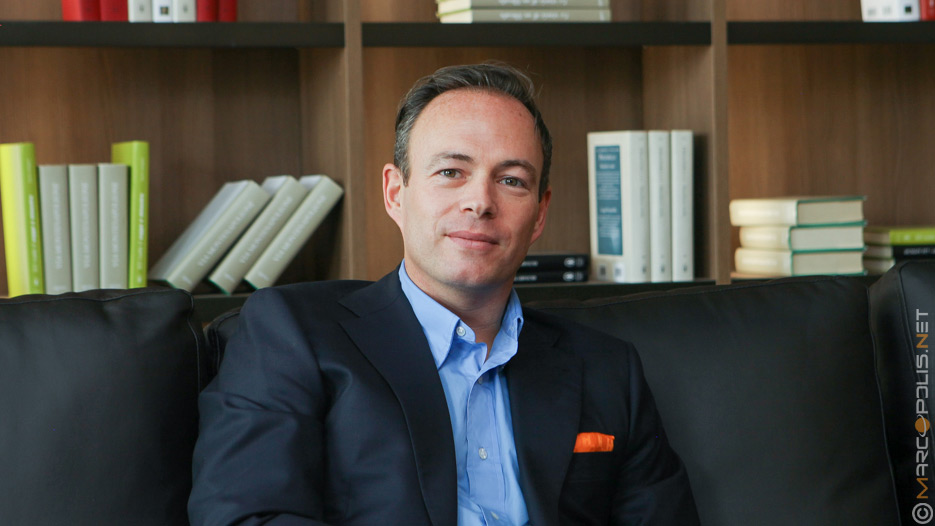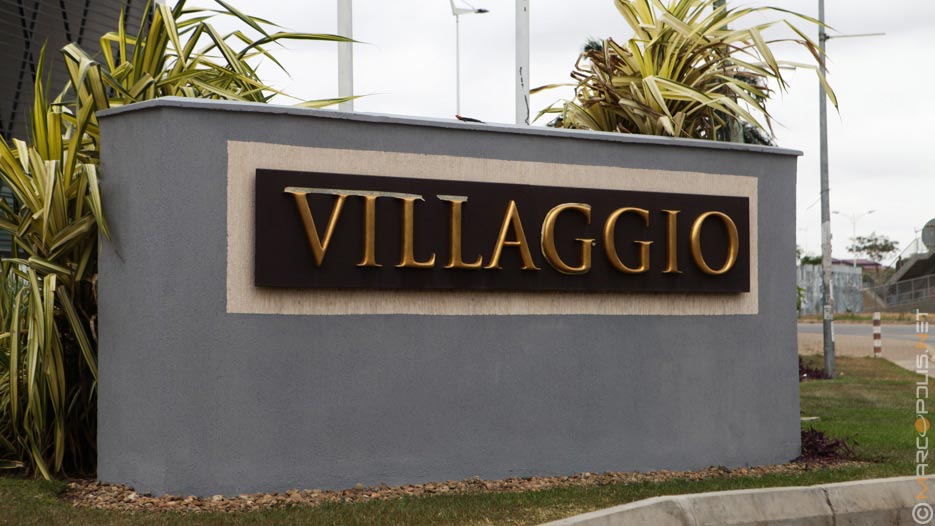High End Real Estate Developer in Ghana: Trasacco Estate Development Co.
“There is a big switch in terms of where people are living. Many of the high end ones which is what we provide are investment properties for onward rental. We see a big change in the expatriates who live in Ghana.”
Interview with Ian Morris, Managing Director of TEDC Trasacco Estates Development Company

How would you evaluate doing business here in Ghana right now?
It was quite difficult last year. There were some announcements made last February or March time about currency controls which really upset the whole system. I have noticed that since the IMF program has kicked in, and since those measures have started to take effect, we have seen a freeing up of the markets since around April time. We actually are seeing it stabilise and get a little bit better.
What about the real estate and construction sector in particular?
Again, for us, we have been fine. We haven’t really suffered anything. Villaggio project is all sold. We have another project called Aurora which is next to the presidential building Flagstaff House, and that is 74% sold and we will finish it in about a month and a half, so it is exactly where we want it to be. We have serviced plots which are selling very well as well at Trasacco Springs development and that is 85% sold. We are just about to complete the infrastructure on there. Then at Trasacco Valley it is the same thing; whatever we have on the market is being sold. So for us it has not been that bad at all, it is business as usual.
What are the main trends in Ghanaian real estate? Where do you see the demand coming from?
We are interested in anything that we see as a good opportunity for us around our core strength of development, construction and product manufacturing.
There is a big switch in terms of where people are living. Many of the high end ones which is what we provide are investment properties for onward rental. We see a big change in the expatriates who live in Ghana, not only in the makeup of them but also in the type of people that are coming. They are slightly different to how they used to be before and they are more used to an apartment style living and prefer that over having an individual house in a compound because it is safer, more convenient and you can make a lot more friends quite quickly.
Trasacco Group entails 12 companies and you have been in Ghana for over 40 years now, could you give us a summary of the main sectors that you are involved in?
The main sectors are real estate, both for sale and long term asset generation i.e. hotels and office buildings; for immediate sale we have residential apartments, houses and land. Then we also have construction companies which produce our own product and we have external companies that produce product for external tenders. We have manufacturing companies that produce a lot of the products that we use in the construction industry, so everything from aggregates all the way up to aluminium windows and doors, timber furniture, timber doors, steel structures, partitions, roofs, concrete blocks, cement curbs, ready mix concrete which is delivered to the sites etc. We have a whole support industry for the construction development industries.
What is the driving force behind Trasacco? You have been around for more than four decades, what is the ingredient to your success?

I think just being able to look at what is happening and then spend time thinking about supplying what we think the market needs. It is looking at what is happening, what we think is going to happen and then providing a solution for that, within our framework. Additionally we must always try to produce a high quality product, a product of as good a quality as you would get anywhere else in the world, not making the excuse of “oh well we are in Ghana so it doesn’t have to be as good”.
And the expertise that you have?
Yes but that you can always buy and bring in. We have a learned knowledge of what is in Ghana but the expertise for specific tasks that we do, we purchase a lot. I must say that the expertise level on the local staff has increased greatly over the last 5 or 6 years. We have seen a huge improvement in the quality of staff and the technical expertise.
Are you planning on entering any new fields?
We are always looking for new opportunities, so yes; we are interested in anything that we see as a good opportunity for us around our core strength of development, construction and product manufacturing. We will stick to those sorts of things. We are looking at agriculture. There are a number of projects that we are getting involved in. It is reasonably exciting but something that we don’t know fully in depth so it is a learning process.
Would you be looking for any partnerships for these agricultural projects?
Yes. We have some large pineapple farms that we are looking for heavy investment on and international partnership for. We have been to Brazil and Costa Rica for that reason. Shrimp is another area we are considering.
Would you like to talk about the resort you are working on?
It is just started, it is in the design phase but everything is signed off and we shall probably start next spring on that. It is a Hilton resort with 220 rooms of which 80 will be in the main building and the other individual chalets are scattered throughout the masterplan. Also there are 50 chalets for sale to the general public which will then be managed to an extent by the resort and residents will have the benefits of living alongside a high quality international five star resort. So they will enjoy the restaurants, the beach club, the spa facilities and things like that but still be slightly separate, living in their own home chalet. We think there is a huge demand for that in this market at the moment. We are very confident that the project will be a real success.
When will it be launched?
Probably around next spring: February or March time next year.
What are the main challenges you face in Ghana?
I would say the unpredictability is the main challenging factor in Ghana, in terms of you don’t know what is going to happen next. I think that the government are listening and they will try to address that. For me, that is the most difficult aspect of working in Ghana. Things can just pop out of nowhere and if there could be a little bit more consultation with the major stakeholders that would help greatly to smooth out how the process works.
Still if you compare Ghana to its neighbours it still comes out as the best.
It is not so much the stability, it is that government is trying to do a good job and so they come out with something that they think is going to be a positive but without the understanding that no business likes uncertainty. Business doesn’t like it if you come out with a new idea without asking anybody if they think it is going to be a good idea, or how it might affect them because these things don’t always affect businesses positively, sometimes they can affect you negatively. For example we have a power problem here now. It doesn’t happen just like that, it is something that builds up and there will be certain governmental agencies that know that something is coming but they don’t alert you or they don’t tell you the truth of when this is going to be over which then means you don’t know what decisions to make. Do I invest in a certain backup power supply or not? How long will this last? Is it worth me doing that? It is the same thing with the currency issues; if they suddenly just change the rules, of course everybody panics.
What is your strategy at Trasacco for the short term?
We want to do more owning assets, so moving away from direct sales and going towards more long term ownership of some of the larger assets i.e. the hotels and office buildings. We want to create a large portfolio of assets but not just in Ghana all across the sub region.
Is there anything else you would like to mention?
For investors in Ghana I would say that this country does have good opportunities. If you just do the simple math it is a population of 27 million right now. They predict that in the next 15 years it will be 45 or 47 million. That is twice the number, so twice the number of consumers. It means that pretty much with any business that you do here that you run in a well-structured way, you are going to make money because you are going to have twice as many people here. I don’t think the country is going to collapse and crash, it doesn’t look like it has any sort of serious constitutional type issues going on, there is good freedom of press, good democratic feeling, whether that is always the best option I’m not sure, but it is there and the rule of law works, the courts of law work despite what you might have seen recently with all these judges being bribed! We have had cases and even as foreigners we have won cases. So yes I think it is open for business, it is good for business and basically whatever you want to do, if you do it well you can do it.